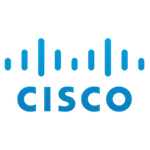Digital Inclusion: How Cisco Is Bringing Connectivity to Communities
by Stacey Faucett

The following is an excerpt from the 2022 Cisco Purpose Report, published on December 8, 2022.
The Internet is a critical lifeline to jobs, education, and socialization for many people. Yet today, about half of the world’s population remains unconnected.
Powering an Inclusive Future for All means addressing the barriers that keep people from accessing the Internet, including cost, skills gaps, and lack of networking infrastructure. But access is just the beginning. Once people are connected to the Internet, we want to create an experience that helps meet their needs. We are making improvements across our product portfolio to help ensure more people are not only connected, but also have trust in digital solutions with product features that set them up for success.
Our impact: Unlocking the value of digitization
Since 2015, Cisco has collaborated with government leaders, industry, and academia to support the delivery of national digital agendas through the Country Digital Acceleration (CDA) program. Over the last two years the pandemic has accelerated the adoption of digital technologies; however, it has also highlighted the stark digital divide that exists across society and within different socioeconomic groups. Through CDA, we are supporting countries to embrace digital and deliver connected and inclusive societies. To date, CDA has over 1100 active or completed projects in 44 countries.
For example:
- In South Africa, we are expanding Cisco Experience, Design, Go-to-Market, Earn (EDGE) Centers. EDGE Centers function as incubators for business knowledge, speed up entry to market, and ultimately create new jobs for the local economy. They provide small- and medium-sized businesses with state-of-the-art Cisco communication and collaboration technology, as well as training and enablement programs to support the growth of local businesses.
- Despite strong privacy and cybercrime laws, Italy is one of the world’s top targets of cyber attacks. Cisco established a first-of-its-kind cybersecurity co-innovation center in Milan. The center will promote research and innovation, train the next generation of cybersecurity professionals, and create a local innovation ecosystem.
- In Switzerland, the region of Jura is making e-government services accessible to citizens, particularly those who have never used e-services before or can’t easily access them from home. Cisco has partnered with local leaders to deploy two interactive kiosks in the town of Porrentruy to help ensure all citizens have access to the services they need.
- Citizens in remote and rural regions in Mexico have limited access to specialist medical consultants. Cisco partnered with Médica Sur, a private healthcare group, to pilot “Doctor in a Box,” a mobile medical kit that can be deployed in isolated parts of the country. By making digital patient services mobile, we have expanded the medical coverage of one of Mexico’s most advanced hospitals.
Inclusion by design in Cisco products
As a collaboration platform, Webex offers multiple ways for people to connect. We continue to invest in and develop more inclusive features for this portfolio of products. For example, Webex Control Hub, which provides real-time analytics for all Webex services, uses a color palette that provides accessibility for colorblind users. High-contrast features in the Webex app and meeting platform make work easier for low-vision users. Real-time closed captioning and translation into over 100 languages during meetings helps those with language or auditory barriers, leading to greater participation and retention, especially when Webex is used for remote learning.
Bringing connectivity to communities
Today, broadband infrastructure has been installed across most of the United States. But even in places where broadband exists, there are regions where large portions of the population experience the digital divide. These “broadband deserts” are home to 82% of the country’s historically Black colleges and universities (HBCUs).
Lack of connectivity has implications for people’s ability to seek education and employment, access healthcare, and connect with others. To address this disparity—and as part of our Social Justice Action 8: Commit to HCBUs, Cisco is installing broadband service on the campus of Claflin University in Orangeburg, South Carolina. The installation’s location makes for an outsize benefit. Not only is South Carolina one of the states with the highest number of households without broadband access, Claflin is located right next to South Carolina State University, another HBCU. The new equipment will provide connectivity to both universities and will extend nearly two miles into the surrounding community.
Once complete, this pilot may serve as a model for other HBCUs that do not have access to government funding. Cisco is fully funding the Claflin installation, and the Student Freedom Initiative is providing support to extend this work to other colleges and universities. This work is just one aspect of Cisco’s efforts to support HBCUs and the AA/B community as a whole.
Scott McGregor, Lead, Cisco Social Justice Action 8, shared, “Throughout their history, HBCUs have been not only a source of education, but also a pillar of their communities. Providing connectivity is a way that they can continue to play this role.”
To learn more about the progress we’re making to power a more inclusive future, visit our Cisco ESG Reporting Hub, where you can read our 2022 Cisco Purpose Report.

